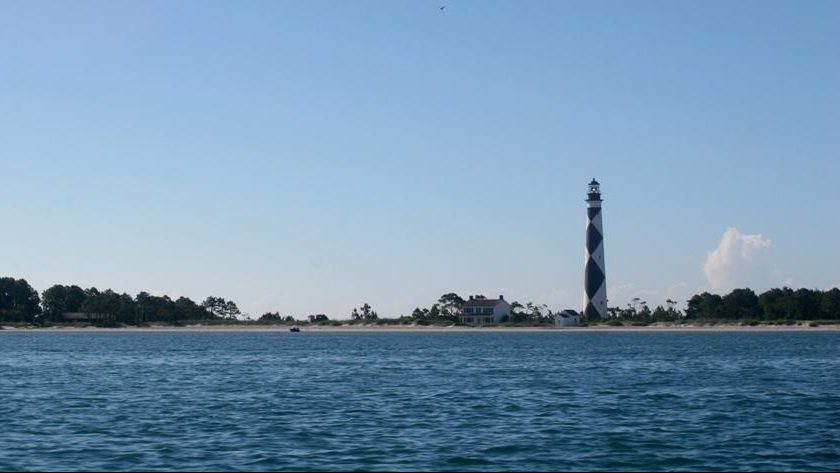Study Finds Knowledge Gaps on Protecting Cultural Sites from Climate Change

Livingston Ledger has published an article about a study from Southeast CASC-supported researchers at North Carolina State University that found significant knowledge gaps in how to protect culturally significant sites from climate change. Researchers are now working with managers to identify possible solutions to these gaps.
North Carolina’s Cape Lookout Lighthouse has been in operation since 1859, but is increasingly affected by climate change impacts such as rising sea levels, coastal erosion, and storm-related flooding. A North Carolina State University (NCSU) study in the journal Climatic Change found that little research exists on how to protect cultural resources, like the Cape Lookout Lighthouse, from the effects of climate change. This study was a comprehensive literature review of past peer-reviewed studies of cultural resources and their effects and value on the local area.
NCSU researchers, local stakeholders, and the Southeast CASC are working together to address this knowledge gap. The research team, which includes USGS scientists Mitch Eaton and Max Post van der Burg, evaluated 17 buildings at Cape Lookout in terms of their significance and their value to the site’s operations. The team will combine this new information with information from an earlier assessment of vulnerability completed by Western Carolina University’s Rob Young, to produce an updated assessment of risk from flooding, erosion, and rising sea levels. The resulting information will help stakeholders set priorities for protecting cultural resources at Cape Lookout in the face of a changing climate.
This study was funded in part by the SE CASC project “Protecting Cultural Resources in the Face of Climate Change”.

- Categories:
